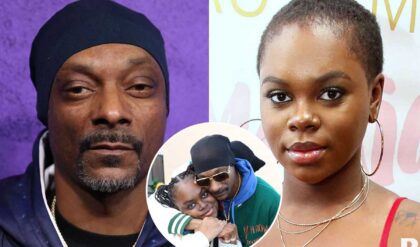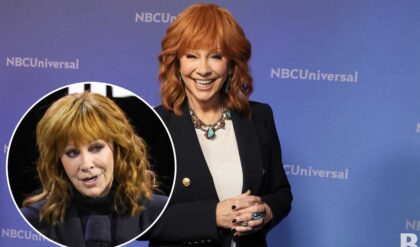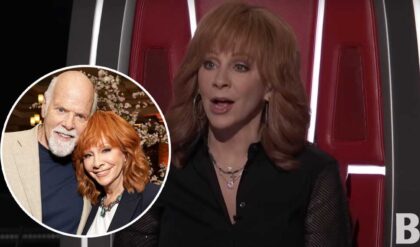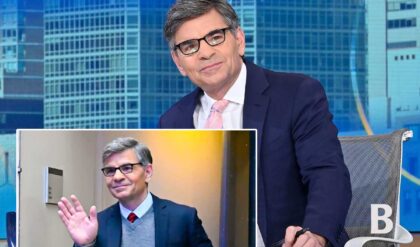When the Music Biz Had It That Way
The Backstreet Boys’ ‘Millennium’ album, which turns 20 this week, was a diamond-selling, ‘TRL’ mainstay in the pre-Napster era. It also may have helped bring about the bad times that followed.
Ringer illustration
They enter in heroic silhouette, striding down a smoke-filled hallway in slow motion like gangsters or astronauts, the bombastic strains of “Also sprach Zarathustra” intercut with the vibrant screams of several hundred teenage girls. Nick. Kevin. Brian. AJ. Howie. Collectively: the Backstreet Boys. It is Sunday, May 16, 1999. BSB fanatics have packed MTV’s iconic Times Square studio—home to the network’s then fairly new and immensely popular weekday music-video countdown show Total Request Live—and dangerously clogged the sidewalks outside it. The occasion: a two-hour live special with everyman TRL host Carson Daly to celebrate the Boys’ third international album, Millennium, which will be released that Tuesday and set the world aflame before Y2K ever gets the chance. It takes several minutes just to get people to settle down. Some of us never do.
/cdn.vox-cdn.com/uploads/chorus_asset/file/16280642/backstreet_boys_2.jpg)
The Backstreet Boys—individually, Howie Dorough, Brian Littrell, AJ McLean, Kevin Richardson, and Nick Carter—formed in Orlando in 1993 at the behest of blimp magnate, one-time music-industry powerhouse, and world-historical Ponzi schemer Lou Pearlman. They hit it big in Europe first; their self-titled U.S. debut, released in 1997, compiled the best tunes from their first two international albums, which explains why there’s a jaunty anthem called “Everybody (Backstreet’s Back)” on the CD that introduced them to America. No explanation was required, though. Transcendent pop thrives on a little cognitive dissonance.
The MTV special kicks off with a few audience questions: Asked which ’90s artists they most admire and were influenced by, Littrell cites Boyz II Men (yes), and Carter shouts out Nirvana (LMAO). From there, the Backstreet Boys regale their fans with a tender live performance of Millennium hyperballad and lead single “I Want It That Way,” which nearly 20 years later will be hailed by Billboard, in a ferociously comprehensive 100-track list, as the single greatest boy-band song of all time, beating out the Jackson 5 (“I Want You Back,” no. 2) and the Beatles (“I Want to Hold Your Hand,” no. 3).
Millennium sold more than 9.4 million copies in 1999 and 1.13 million in its first week alone, then a record for the SoundScan era. Two artists would clear that bar the following year. Britney Spears, whose January ’99 debut album …Baby One More Time informally kicked off the turn-of-the-century teen pop boom in America, moved 1.3 million units of her May 2000 follow-up Oops!…I Did It Again in its first week. But that figure couldn’t touch what was by then the new industry pinnacle, set in March 2000 by ’NSync, Pearlman’s other Orlando-born blockbuster boy band, who sold 2.4 million copies of their second album, No Strings Attached, in seven days.
The word copies, just to be clear, refers not to any modern, Billboard-sanctioned album-equivalent sales tomfoolery, but to actual physical reproductions of a compact disc you had to buy, physically, for $15.99 or so, and could then actually hold in your hand. It was the music industry’s finest hour that doubled as the music industry’s dulcet death knell. “Teen pop was one last squeeze of the sponge to get the world to spend millions and millions of dollars on compact discs,” writes journalist Steve Knopper in his 2009 book Appetite for Self-Destruction: The Spectacular Crash of the Music Industry in the Digital Age. “It wouldn’t last.” The Backstreet Boys and ’NSync soon fell out of mega-popular vogue, as boy bands are all but designed to do; the cheerfully disruptive file-sharing service Napster rose to power as the 21st century dawned and all but vaporized the music biz entirely.
Peak Backstreet Boys is thus a phenomenon that must be quantified in both raw numbers and raw, ear-shredding screams. There are no hints, revisiting that 1999 MTV special now, that one is witnessing the beginning of the end of empire. (The show’s best moment is a tie between the ebullient U.K. fan who declares, “I think you’re really funky dancers!” and the part where McLean, who is wearing a leopard-print cowboy hat, shares his enthusiasm for “the whole punk scene,” including Korn, Orgy, and Limp Bizkit.) Millennium, as a full-album statement in a genre profoundly disinclined toward full-album statements, kicks off with three fantastic songs but lapses from there into far less rewarding balladry, from the one called “Spanish Eyes” to the one called “The Perfect Fan” that is about the Backstreet Boys’ mothers.
For those inclined to view Napster as cosmic justice for an industry that charged $15.99 (or so) for the two or three songs you really wanted, this record is the zenith/nadir of the form. “It was no coincidence, then, that Napster, the free file-sharing service, popped up on the internet at precisely this time,” Knopper writes. “The least frustrating way to obtain ‘I Want It That Way’ in 1999 or 2000 was to download it for free. Illegally.”
“To this day, I still have all of the Backstreet Boys TRL appearances on VHS, and if I knew they were going to be on, it was absolutely the most important part of my day, because every word that Kevin, Brian, Nick, AJ, and Howie said was definitely going to be discussed the next day at recess.” —Sara Taylor, founder of What Happens on the Backstreet
The music industry, thanks to forces of nature from Adele to Spotify, has since recovered, somewhat. But that recovery took nearly two decades, and even now, nobody makes albums like Millennium anymore because nobody buys them, physically or otherwise. The Backstreet Boys, remarkably, have persevered on a relatively modest but still quite impressive scale in the 20 years since, what with the Vegas residency and the luxury cruises and the various nostalgia antics, including a cheery 2018 return trip to MTV’s ill-fated TRL reboot. Their ninth album, January 2019’s DNA, debuted at no. 1 on the Billboard charts with a mere fraction of their peak-era sales, even with all that streaming-borne album-equivalent tomfoolery. But that’s the industry’s problem, not theirs.
The sheer outlandish emotion triggered by Millennium in 1999 is nonetheless hard to put in context now; so is the equally outlandish math. The music industry sold tons of records in the late ’90s, which in turn stirred up a ton of resentment. It was the best of times, in short, that arguably helped bring about the worst of times.

The lyrics to “I Want It That Way” do not make, in the classic meaning of the word, sense. The lines “Tell me why / I never wanna hear you say / I want it that way / ’Cause I want it that way” alone are a labyrinthine pronoun nightmare, as much wiser people than myself have long observed. Who is quoting whom saying what, when? Who knows? Who cares? “It is a sort of a high-energy, youthful, jovial, kind-of-embarrassing-but-free-of-embarrassment pop song that is very definitively ‘boy band,’” says Jezebel senior writer Maria Sherman, who is writing a book about boy bands slated for publication in 2020. “And it’s not explicitly sexual, but there’s obviously, you could draw—there are love connotations in it.” You get the song’s point, even if you can’t explain it.
Cowritten, like much of the best material from both the Backstreet Boys and any other modern superstar you’d care to name, by Swedish pop-whisperer supergenius Max Martin, “I Want It That Way” is a triumph of exhilaration over coherence. As a recent New York Times Popcast episode about the Backstreet Boys reminds us, an alternate lyrical version of the song—all those instances of “tell me why” are mostly replaced with “no more lies” or “no goodbyes,” for starters—helps clear things up thematically and also makes the song, objectively, worse. Confusion: Accept no substitutes.
Getty Images
Martin is a proponent of “melodic math,” in which every lyrical syllable aligns perfectly—think Katy Perry’s “Teenage Dream” or a strident counterexample like Lorde’s “Green Light” or “Royals”—even if the words formed out of those syllables, divorced from the song itself, sound clunky as hell. Millennium’s monumentally peppy leadoff track, “Larger Than Life,” is a love letter to BSB fans for making the group rich and famous; the Boys express this idea lyrically in a chorus that begins, “All you people / Can’t you see, can’t you see / How your love’s affecting our reality?” You’d think there’d be a better way to put it, and you’d be wrong.
Sara Taylor, a Nashville native who in 2014 started the website What Happens on the Backstreet to track all BSB activity—“I wanted to create a Backstreet-type BuzzFeed for fans, by fans, so that’s what I did,” she says—was one such superfan, and she was as grateful for the band as the band was for her. “I first heard the Backstreet Boys in 1998,” she writes me. “At the time, I was 9 and dealing with the sudden loss of my father. They were a constant source of joy and excitement when my world was unpredictable after my dad passed away, and they have been through every life moment since then, so promoting them through WHOTB and showing up for them now is the very least I can do to repay them.”
As for Sherman, she was 7 years old when Millennium came out. “Yeah, they were the first dude vocalists that I was into,” she recalls of the Backstreet Boys. She first heard of the band via a hidden CD track at the end of Britney Spears’s …Baby One More Time, in which Spears enthusiastically provides what she calls “a private sneak preview of some new music from an upcoming album from some labelmates of mine.” This entailed brief clips of several Millennium tracks, including the monster ballad “Show Me the Meaning of Being Lonely.” “It worked,” Sherman tells me. “It’s really cheesy marketing that I think nobody would enjoy now, but it really did work. And I think I’m not alone in getting into them that way.” (It also worked out great for Spears, given that some rabid BSB fans bought her album just for that preview.)
Sherman is also not alone in staying into the Backstreet Boys via the relentless teen-pop clubhouse cheerleading of MTV. “I think the success of Millennium is really more of a TRL story than anything else,” she says. “Because TRL launches in September 1998, and then you have Millennium in May 1999, when they shut down Times Square, because it becomes the place where fans could congregate, and they would know where these artists are.”
Taylor enthusiastically agrees: “I could NOT imagine being a fan without MTV/TRL,” she writes. “To this day, I still have all of the Backstreet Boys TRL appearances on VHS, and if I knew they were going to be on, it was absolutely the most important part of my day, because every word that Kevin, Brian, Nick, AJ, and Howie said was definitely going to be discussed the next day at recess.”
TRL was also ground zero for the feud, however contrived, between the Backstreet Boys and ’NSync, who released their self-titled debut album in May 1997, a year after the first international BSB record. “Their rivalry may not have been real, but the rivalry between fans (for most of us) definitely was,” Taylor says. “Backstreet not being at no. 1 on the countdown felt like we had let them down. In a time without social media, voting for their video to be at the top of a countdown or their song to be most requested on the radio seemed like the only way that we could communicate to them (and to the world) how much we really loved these Boys.”
MTV, in short, was in charge of the only chart that really mattered. “I always joke that ’90s fangirls know the importance of voting more than ANYONE because of TRL,” Taylor says. “It was cutthroat, and the anger of anyone beating out BSB was REAL.”
The other way to show how much you loved an artist, of course, was to pay up. The ’90s musical ecosystem—which required a dutiful fan to blow most of a $20 bill just to hear the new record in question—worked beautifully for music’s biggest and boldest names, until it stopped working for pretty much everyone all at once.
Millennium’s first three tracks—“Larger Than Life,” “I Want It That Way,” and “Show Me the Meaning of Being Lonely”—are a powerhouse trilogy that can rival any late-’90s album in any genre. Laced with the soft-focus R&B crooning—and trace amounts of the cocksure rap-god posturing—dominating the charts at the time, these tunes remain unbeatable teen-pop classics. Those songs alone lock the Boys into the modern boy-band lineage begun with New Kids on the Block and New Edition in the ’80s, refined by Boyz II Men in the ’90s, and shrewdly tweaked by 21st-century innovators to come, from One Direction to BTS.
The Backstreet Boys and ’NSync, who ruled the late ’90s and early 2000s, are the peak that portended the valley, with an omni-pop sound that is both timeless and proudly, hopelessly dated. This genre of music is, to a singular extent, not supposed to last. The very term “boy band” is often a misnomer, but also a reminder that all these groups theoretically had a hard, non-negotiable biological out, even if they blew right past it and soldiered on for 20-plus years.
In any event, from Track 4 onward, Millennium has a far smaller musical footprint. True, this record does not contain what four out of five Backstreet Boys now agree is the group’s worst-ever song, the witless early boast “If You Want It to Be Good Girl (Get Yourself a Bad Boy),” which McLean once described as “the biggest piece of crap.” (Carter abstained from the vote.)
If you prefer the BSB experience at its most spiteful, “Don’t Want You Back” is viscerally aggrieved and expertly clunky: “But I should have known that I would be / Another victim of your sexuality.” The treacly Carter showcase “I Need You Tonight,” produced by arena-rock god and Shania Twain savior/antagonist Mutt Lange, is the best of the many chest-pounding slow jams. But woof, “The Perfect Fan.” “I think it probably did well for a tween audience, because young girls obviously love boys who love their moms,” Sherman allows. “But it’s just so cheesy.”
“The Backstreet Boys, their image was always a little bit darker, a little moodier. Like, they had black-and-white videos of them getting rained on, and they’re wearing leather, and things of that nature, without being too sexual—just, like, ‘We’ll be PG-13 about the whole thing.’” —Maria Sherman, senior writer at Jezebel
Naturally, someone more personally invested in the group would disagree. “It’s a joke among hardcore BSB fans that we could do without hearing ‘I Want It That Way’ all the time,” Taylor says. “If you ask any diehard what their favorite Millennium song is, it’s likely not to be one of the singles, and I think that’s the beauty of the album—there is something for everyone, even now. There’s the fun bubblegum pop of ‘It’s Gotta Be You,’ and there’s ballads like ‘Don’t Wanna Lose You Now’ that not only showcases powerful vocals, but some deep feelings.”
Put in the work, and the deep cuts, too, will stand the test of time. “It’s also worth noting that on the 2018 BSB cruise, the Boys sang the Millennium album all the way through,” Taylor says. “We were crying. They were crying. How many albums hit artists AND fans like that?”
/i.s3.glbimg.com/v1/AUTH_ba3db981e6d14e54bb84be31c923b00c/internal_photos/bs/2021/L/k/bgdr3eS9uIKIEx97nBNQ/2019-05-14-backstreet-boys-millennium-20th-anniversary-spotify-playlist.jpg)
Nonetheless, Millennium didn’t get to enjoy its status as an all-time record-breaker for long. Pearlman was not exactly shy about his motivations for creating ’NSync: “My feeling was, where there’s McDonald’s there’s Burger King, and where there’s Coke there’s Pepsi, and where there’s Backstreet Boys there’s going to be someone else,” he told New Yorker reporter and The Song Machine author John Seabrook in 2014. “Someone’s going to have it; why not us?”
Pearlman’s shadiness is an essential part of this boy-band moment, a neverending torrent of lawsuits and contract disputes that played out more like hostage negotiations. In March 2019, YouTube Premium unveiled The Boy Band Con: The Lou Pearlman Story, a full documentary on the infamous industry titan, coproduced by ’NSync member Lance Bass, which makes its feelings plain right in the title. Pearlman died of cardiac arrest in 2016, while serving a 25-year prison sentence for conspiracy, money laundering, and making false statements during a bankruptcy proceeding; as for the glory years, suffice it to say that the title of ’NSync’s 2000 blockbuster No Strings Attached was wishful thinking to the point of delusion.
It hardly mattered at the time. ’NSync were, Sherman notes, even funkier dancers with, in Justin Timberlake, a genuine frontman with enough supernatural star power that he’d soon transcend the boy-band template entirely. Whether No Strings Attached is a better album than Millennium is beside the point; it’s enough that ’NSync felt like a calculated upgrade on the Backstreet Boys’ model. Which is not to say that there wasn’t a distinct BSB identity, even if they were slightly less distinct as individual people. “The Backstreet Boys, their image was always a little bit darker, a little moodier,” Sherman says. “Like, they had black-and-white videos of them getting rained on, and they’re wearing leather, and things of that nature, without being too sexual—just, like, ‘We’ll be PG-13 about the whole thing.’”
They were hitmakers in a genre that has no use for album artists; they were relatively anonymous as personalities unless you were following them closely, which, of course, millions of screaming fans were. The Backstreet Boys, in short, played the game well when there was, industry-wise, no better time to be playing it. And what they didn’t do as well, musically or aesthetically, didn’t really need to be done at all.
“This ‘one album and one world tour a year’ schedule, I think when you’re so accelerated, even if you’ve got Max Martin behind you, it doesn’t really seem like you’re going to produce 12 bangers,” Sherman says. “I do think it’s interesting that the Backstreet Boys’ hits do kind of stand the test of time, because with the whole album, those songs I don’t think were written to be timeless. I think the only reason they’re kind of classic is because they were so ubiquitous, which is a very specifically boy-band phenomenon.”
The Backstreet Boys returned in 2000 with their own blockbuster album, Black & Blue, an only slightly less outlandish success than Millennium or No Strings Attached with 24 million copies sold worldwide. But they didn’t put out another record until 2005’s Never Gone, and soldiered on as a quartet for a few years thereafter when Richardson briefly left to pursue a solo career. (Since 2012, he’s been back, all right.) Here in 2019, the BSB monolith perseveres as a well-oiled nostalgia machine prowling yet another pop-universe micro-niche among hundreds. Thanks to their new album DNA, the Boys are still capable of topping the charts—in dead-zone January—yet they’re more concerned with pleasing their core fans, which necessarily involves growing up, and growing uncool, right alongside them.
Nostalgia is an especially powerful force in this realm: Witness the reunited Jonas Brothers, early-2010s legends whose new single “Sucker” topped the Billboard Hot 100 in March, making them the first boy band to hit no. 1 on that chart since B2K did it 16 years ago. Like the Boys, the Jonases are hot again, even if they’re too old now to technically be cool. Modern-boy-band-wise, the action is now almost entirely abroad thanks to omnivorous young bucks like the well-coiffed K-pop supernovas BTS, who are as apt to draw from reggaeton or EDM as any sounds the Backstreet Boys ever got into.
But that’s the way it works: The hottest young group of any particular era makes its own rules and ignores its own bygone idols. But those idols don’t ever quite fade away. Millennium is not, in full, an undiscovered classic, but that’s in part a testament to how many millions of die-hard fans so immediately and passionately discovered it back in May ’99. Twenty years on, it mostly just sounds like money, and money burning. Which offers a very specific sort of warmth, bathed in a very specific sort of glow.
News
[EMOTIONAL] Snoop Dogg’s Daughter Cori Broadus Makes Fans Cry Recalls Suffering a Stroke in New Special
Snoop Dogg’s Daughter Cori Broadus Details Suffering Stroke While Wedding Planning in New E! Special Snoop Dogg’s daughter Cori Broadus faces a terrifying health scare and major relationship troubles while planning her wedding in first trailer for E!’s Snoop Dogg’s Fatherhood:…
Reba McEntire Fans Call Out Country Star for Perplexing Message
Reba McEntire Fans Call Out Country Star for Perplexing Message on Election Day Many celebrities issued political messages leading up to the 2024 election, but Reba McEntire was not one of them. On Election Day, however, the country star issued a perplexing statement…
[Watch] Reba McEntire Makes A Stuns As She Cozies Up to Boyfriend Rex Linn in Her ‘The Voice’ Chair
Reba McEntire had a special guest on the set of The Voice recently: The first-time coach’s boyfriend and fellow “tot” Rex Linn stopped by. The pair cozied up for a couple of photos in her iconic red chair, and McEntire used the opportunity to solicit votes for…
John Legend Makes A Stun As He Reveals When Blake Shelton Will Return to The Voice
‘The Voice’: John Legend Addresses Whether Blake Shelton Will Ever Return to Show Amy Sussman/Getty Images; Jason Davis/Getty Images) Following Blake Shelton‘s exit from The Voice at the end of Season 23, John Legend is now the longest-tenured coach on the NBC singing competition series. But could…
The $H0CKING Reason Niall Horan Leave ‘The Voice’. Her Is All You Need To Know
Why Did Niall Horan Leave ‘The Voice’ Season 25? Here’s the Real Reason Behind His Exit The former One Direction band member won’t be a judge on the NBC series in 2024. NBC We’ve been independently researching and testing products…
Gwen Stefani Said ‘The Voice’ caused a misunderstanding about she and Blake Shelton relationship
Gwen Stefani Said ‘The Voice’ Edited Footage to Look Like She Was Flirting With Blake Shelton Long Before They Were Together In 2015, both Gwen Stefani and Blake Shelton left their respective marriages. Stefani had wanted to conceal her separation from Gavin Rossdale on…
End of content
No more pages to load











